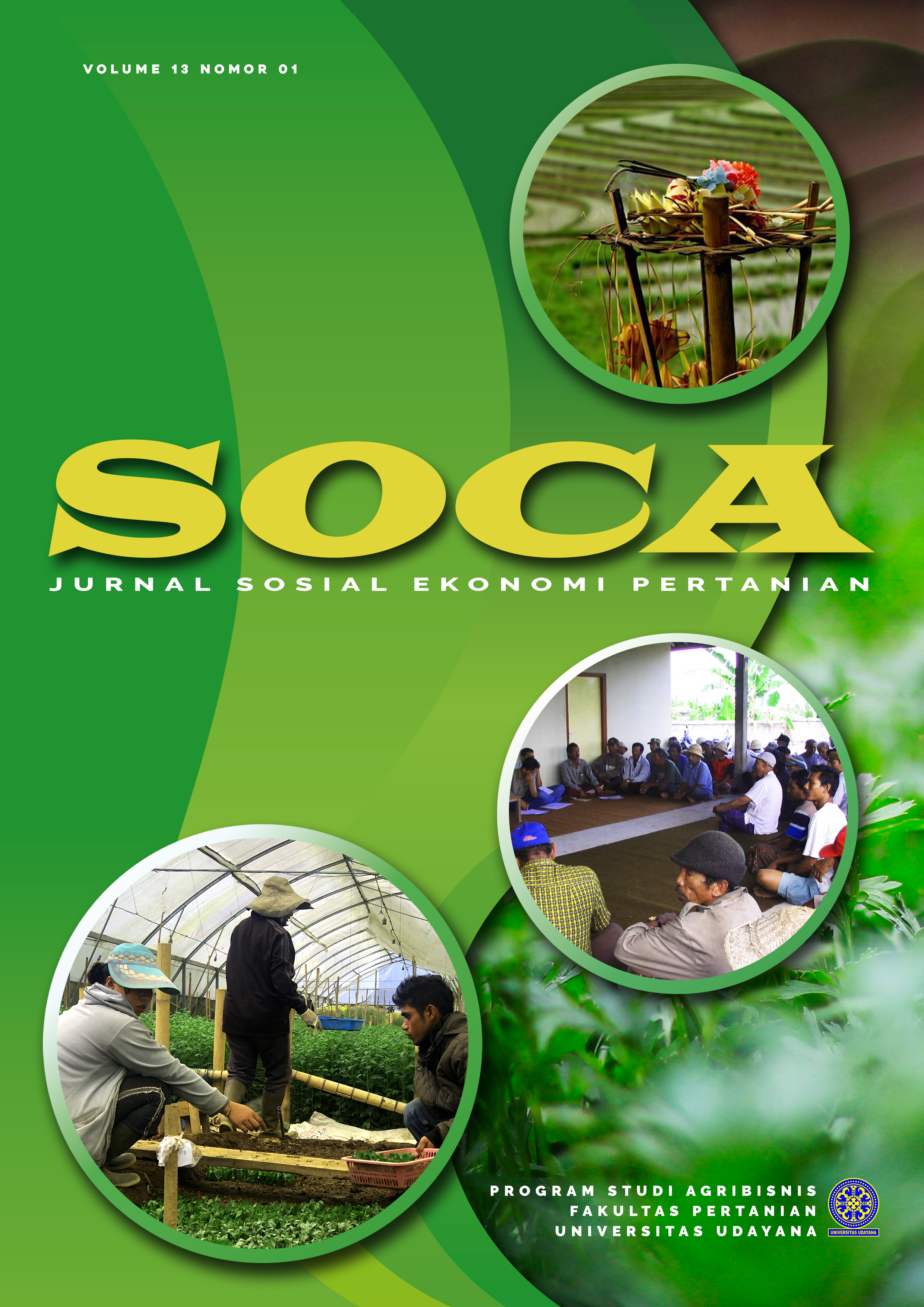STAKEHOLDER ROLE IN EMPOWERING SUGAR CANE FARMERS IN DOMPU DISTRICT NTB PROVINCE
Abstract
PT SMS, the central government in collaboration with the regional government of Dompu district in 2014 has developed sugarcane farming especially on dry land / moor accompanied by the construction of a sugar factory. The shift in the function of sugar cane development land is due to the conversion of technical irrigated rice fields into industrial buildings and other infrastructure. With the shift in sugarcane cultivation on dry land / moor it is expected to achieve national sugar self-sufficiency targets. The implementation of intensification and extensification of sugarcane farming on dry land can be done by assisting and escorting technology through the provision of appropriate technology (P3GI, 2008). The purpose of this study is 1). to find out the role of stakeholders in the activities of the Development of People's Sugar Cane in the concentrated sugar factory (PG) of PT SMS in Dompu Regency, 2). to find out the supporting and inhibiting factors of the role of stakeholders in the activities of the Development of People's Sugar Cane in PT SMS Dompu Regency. Based on the studies that have been conducted, it can be concluded that the relevant stakeholders in the Development of People's Sugar Cane in the work area of PT SMS have performed their roles well. This can be seen from the role of stakeholders in activities (1) Providing capital credit to sugarcane farmers; (2) Extension activities; (3) Partnership Meeting Forum Activities; (4) Core garden activities; and (5) payment system. It's just that extension workers in the plantation sector need to be improved by providing assistance to sugarcane farmers intensively.
Downloads
References
Domai, Tjajanulin. (2011) Sound Governance. Malang, UB Press.
Hadi, Nur. (2011) Corporate Social Responsibility (edisi pertama). Yogyakarta, Graha.
Hetifah, S.J Sumarto. (2003) Inovasi, Partisipasi, dan Good Governance: 20 Prakarsa Inovatif dan Partisipatif di Indonesia. Jakarta, Yayasan Obor Indonesia
I P C. Putra A., Sudarto, S. Y. G. Bulu, 2017. Kajian Integrasi Tebu Dan Ternak Sapi Mendukung Kawasan Perkebunan Tebu Di Kabupaten Dompu. Prosiding Semnas Agribisnis IV 2017. Potensi dan Peningkatan Nilai Tambah Produk Agribisnis Lokal Untuk Kesejahteraan Petani. Semarang 6 September 2017. Penerbit Universitas Diponogoro Semarang. ISSN: 2599-1140.
Payne, Malcom. 1997. Modern Social Work Theory. Second Edition. MacMillan
Pratikno. (2004) Dari Good Governance Menuju Just & Democratic Governance. Makalah untuk Seminar
Nasional, FISIPOL UGM.
Puslitbangbun, 2014. Percepatan Penerapan Teknologi Tebu Terpadu (P2T3). Pusat Penelitian dan Pengembangan Tanaman Perkebunan. Badan Litbang Pertanian.
P3GI, 2008. Konsep peningkatan rendemen untuk mendukung program akselerasi industry gula nasional. Konsep peningkatanrendemen. files/dtag.htm;refreshcount. Pusat Penelitian Perkebunan Gula Indonesia (P3GI) isri@telkom.net. (Diakses 12 Januari 2015).
Robbins, S.P. (2001) Organizational Behavior: Concepts, Controversies, Applications. Englewood Cliffs, NJ, Prentice Hall.
Soekanto, Soerjono. (1990) Sosiologi Suatu Pengantar. Jakarta, Rajawali Pers.
Sugiyono, 2004. Metode Penelitian Bisnis. CV. Alfabeta, Bandung.
Suharto, E. 2005. Membangun Masyarakat Memberdayakan Rakyat: Kajian Strategis Pembangunan Kesejahteraan Sosial dan Pekerjaan Sosial. Rafika Aditama. Bandung.
Sumodiningrat, G. (1999). Pemberdayaan Masyarakat dan Jaring Pengaman Sosial.
Jakarta: Gramedia. Press Ltd., London.
Thoha, Miftah. (2003) Birokrasi dan Politik di Indonesia. Jakarta, Rajawali Pers.
Utomo, Warsito. (2006) Adminstrasi Publik Baru Indonesia: Perubahan Paradigma dan Administrasi Negara ke Administrasi Publik, Yogyakarta, Pustaka Pelajar.













